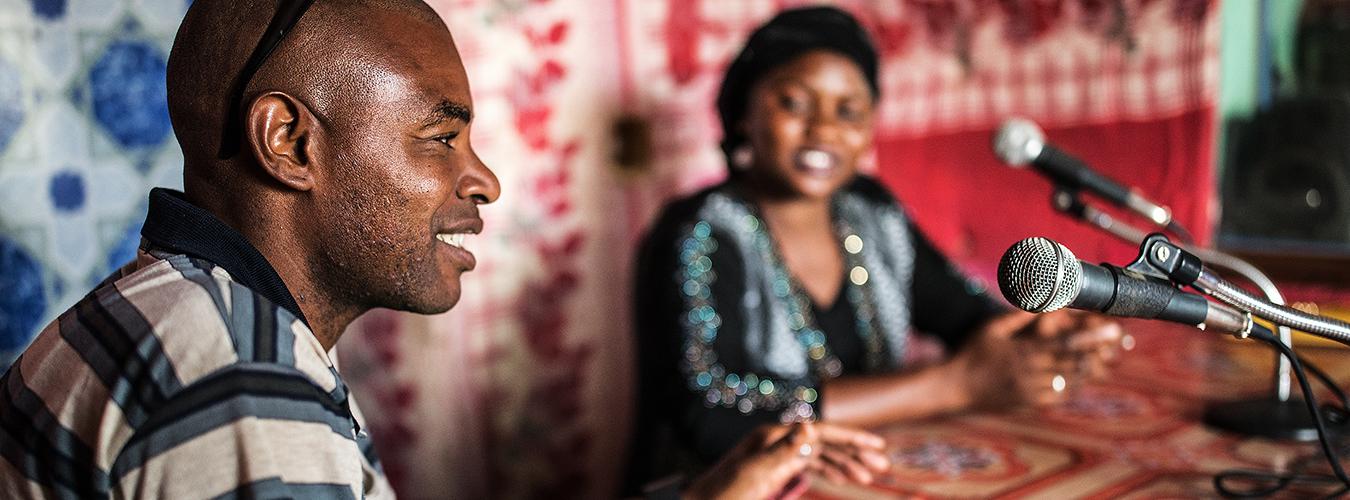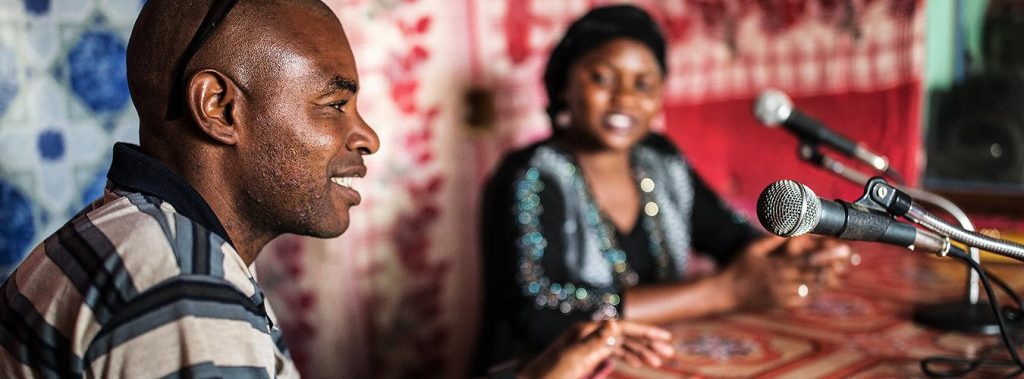Radio is a powerful medium for celebrating humanity in all its diversity and constitutes a platform for democratic discourse. At the global level, radio remains the most widely consumed medium. This unique ability to reach out the widest audience means radio can shape a society’s experience of diversity, stand as an arena for all voices to speak out, be represented and heard. Radio stations should serve diverse communities, offering a wide variety of programs, viewpoints and content, and reflect the diversity of audiences in their organizations and operations.
Radio is a low-cost medium specifically suited to reaching remote communities and vulnerable people, offering a platform to intervene in the public debate, irrespective of people’s educational level. It also plays a crucial role in emergency communication and disaster relief.
Radio is uniquely positioned to bring communities together and foster positive dialogue for change. By listening to its audiences and responding to their needs, radio services provide the diversity of views and voices needed to address the challenges we all face.
For World Radio Day 2020, UNESCO calls on radio stations to uphold diversity, both in their newsroom and on the airwaves.

Origin
UNESCO’s Executive Board recommended to the General Conference the proclamation of World Radio Day, on the basis of a wide consultation process, carried out by UNESCO in 2011, further to a proposal from Spain. The leader of the project, the Academia Española de la Radio, received support for the proposal from diverse stakeholders, including major international broadcasters and broadcasting unions and associations.
The date of 13 February, the day United Nations Radio was established in 1946, was proposed by the Director-General of UNESCO.
UNESCO’s General Conference, at its 36th session, proclaimed 13 February as World Radio Day.
On 14 January 2013, the United Nations General Assembly formally endorsed UNESCO’s proclamation of World Radio Day. During its 67th Session, the UN General Assembly adopted a resolution proclaiming 13 February as World Radio Day.
Purpose
The objectives of the Day are to raise greater awareness among the public and the media of the importance of radio; to encourage decision-makers to establish and provide access to information through radio; as well as to enhance networking and international cooperation among broadcasters.
Messages
UN Secretary-General
Radio brings people together. In an era of rapid media evolution, radio retains a special place in every community as an accessible source of vital news and information.
But radio is also a source of innovation that pioneered interaction with audiences and user-generated content decades before they became mainstream.
Radio offers a wonderful display of diversity in its formats, in its languages, and among radio professionals themselves.
This sends an important message to the world. As we strive to achieve the Sustainable Development Goals and tackle the climate crisis, radio has a key role to play as a source of information and inspiration alike.
On this World Radio Day, let us recognize the enduring power of radio to promote diversity and help build a more peaceful and inclusive world.

